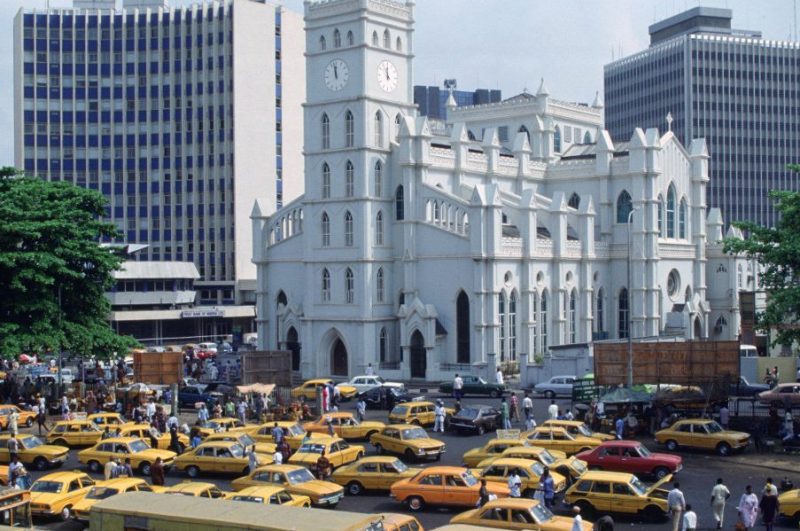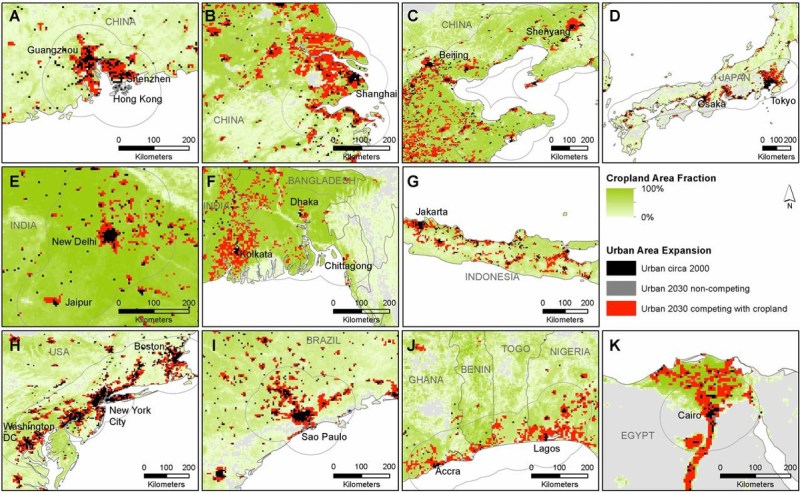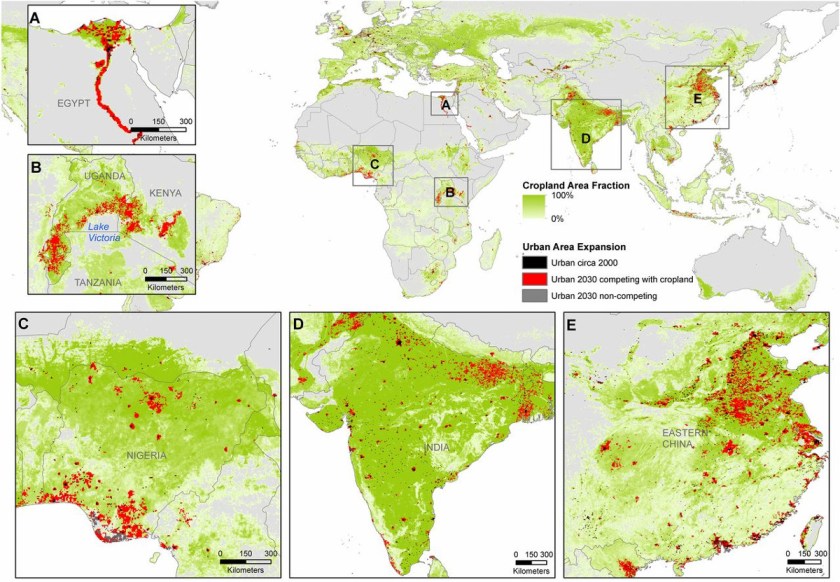
Joni Mitchell’s “Big Yellow Taxi” couldn’t have been more prescient. While the proverbial “they” didn’t exactly “pave over a paradise,” farmlands critical to sustaining Earth’s population could be at risk.
Led by the Mercator Research Institute’s Felix Creutzig, a new study predicts that urban expansion could give rise to numerous megacities that would threaten the productivity of farming systems across the globe, but especially in Africa and Asia. By 2030, global agricultural production could drop by as much as 4%.

Research for the study was conducted by combining datasets on cropland location, productivity, and projected urban expansion by 2030. Highlighting the nexus of cropland and problematic urban sprawl, the trends were most noticeable in Egypt, Nigeria, the Lake Victoria region of East Africa, and eastern China, where one-quarter of the projected global cropland loss is centralized.
Aside from the obvious concern over a massive loss of farmland, the study’s results are troubling because 60% of the world’s cropland is peripheral to cities, and twice as productive as more remote locations. City-adjacent farmland is also threatened by climate change and population growth, often beyond the point of adaptation to them.

Beyond the implications of these changes to farmers, land rights, and trade, food security could be at risk. Staple crops like rice, soybeans, and wheat are uniquely threatened by unchecked urban growth. To avoid the food crisis it predicts, the study recommends intensifying agricultural production, as well as urban farming, in addition to regulations on city expansion. Unless they are implemented quickly, any efforts to counter the effects of urban expansion may be fruitless (no pun intended).
Click here to read the full study, which was published in Proceedings of the National Academy of Sciences. To a get of how rapidly this change is occurring, take a look at this Google Timelapse view of Chongqing, China from 1984 to 2016.
—RealClearLife Staff
This article appeared in an InsideHook newsletter. Sign up for free to get more on travel, wellness, style, drinking, and culture.























